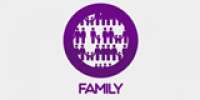Council of the European Union adopted conclusions on combating hate crime in the European Union
ILGA-Europe statement regarding the Council of European Union Conclusions on combating hate crimes in the European Union adopted on 5-6 December 2013.
During its meeting on 5-6 December 2013, the Justice and home affairs Council of the European Union adopted conclusions on combating hate crime in the European Union.
ILGA-Europe welcomes the fact that EU justice and home affairs ministers started to list European-level and national-level measures to combat hate crime across the EU. However, these conclusions remain disappointing. On the one hand, the ministers do suggest that all EU Member States should individually consider improving their criminal codes to combat all forms of hate crimes, including homophobic and transphobic crimes. On the other hand, they fall short of the political will to commit to the adoption of the EU measures which would ensure that this really happens in all Member States.
The Council’s conclusions thus disregard calls by ILGA-Europe and other civil organisations for an extension of the existing Framework Decision on combating racism and xenophobia to address also other biases, including homophobia and transphobia. This call had been clearly expressed in the Conclusions of the recent Fundamental Rights Conference organised by the Council’s Presidency and the Fundamental Rights Agency in Vilnius, on 12 and 13 November.
On a more positive note, the Justice and home affairs Council demonstrated awareness about homophobia and transphobia and issued recommendations on tackling hate crime based on the results of findings of the EU Agency of Fundamental Rights EU LGBT Survey. Additionally, the Council called on such EU institutions as the European Police College (CEPOL) and the EU Judicial Cooperation Union (Eurojust) to continue efforts to counter hate crime in their mandates. This could be translated into such measures as providing tools or training of relevant professionals like police and prosecutors. The Council also called for more resources to be allocated by EU and national institutions to tackle hate crimes, improving cooperation between all involved stakeholders, and training of professionals.
Lastly, the Council called on EU Member States and the Commission to fully implement and monitor the implementation of existing provisions, including the Directive on Victims’ Rights. In that respect, ILGA-Europe welcomes that the Council stressed the need to assess protection needs of hate crime victims’ (Article 22 of the Directive), and pointed to the importance of this harmonisation measure and of its effective implementation. ILGA-Europe believes that the effectiveness of this provision, which is based on a correct understanding of the concept of “crime committed with a bias or discriminatory motive which could, in particular, be related to their personal characteristics”, can only be achieved by adopting common EU criminal law standards on that point.
Brussels
11 December 2013
References:
The Council of the European Union conclusions on combating hate crime in the European Union

 Print HTML
Print HTML









